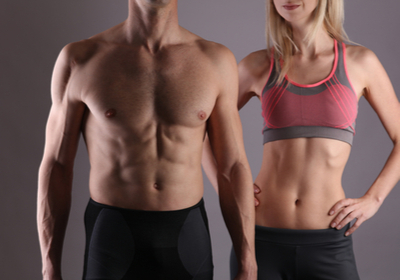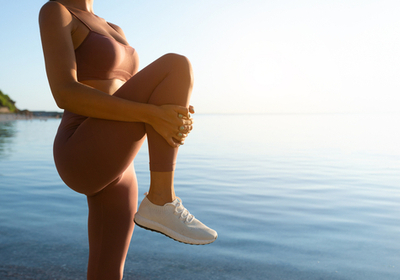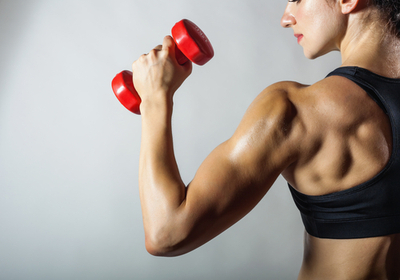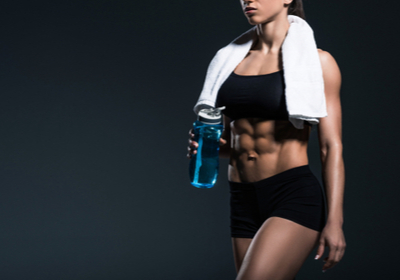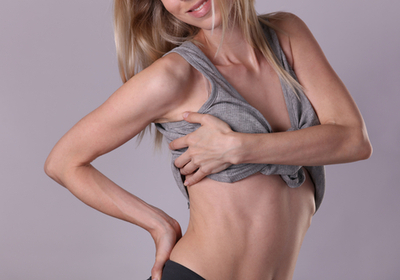VIDEO
Wall Pushups, Wall Plank Variation
- Core
- Arms
- Back
- Legs
- Abs
- Biceps
Level:Advanced
Trainer:
Equipment:Fitness Mat
Wall Pushups, Wall Plank Variation
- Core
- Arms
- Back
- Legs
- Abs
- Biceps
Level:Advanced
Trainer:
Equipment:Fitness Mat
1. Put your hands on the wall shoulder-width apart. Bend your elbows and lean to the wall. Hold in this position for a second, slowly push back, and repeat. 2. Facing away from the wall, make a squat keeping your hands shoulder-width apart. Walk your legs up the wall until they are higher than in a standart plank. Hold this position.
save to ...
RECOMMENDED FOR YOU
- Core
- Biceps
- Triceps
Duaration: 00:27
save to playlist
- Abs
- Triceps
- Upper Back
Duaration: 00:15
save to playlist
- Core
- Back
- Legs
Duaration: 00:15
save to playlist
- Arms
- Back
- Abs
Duaration: 00:15
save to playlist
- Core
- Arms
- Legs
Duaration: 00:15
save to playlist
- Biceps
- Upper Back
- Lower Back
Duaration: 00:15
save to playlist
- Core
- Arms
- Legs
Duaration: 00:15
save to playlist
- Legs
- Abs
- Biceps
Duaration: 00:15
save to playlist
- Arms
- Legs
- Trapezius
Duaration: 00:14
save to playlist
- Core
- Arms
- Legs
Duaration: 00:15
save to playlist
- Core
- Arms
- Legs
Duaration: 00:15
save to playlist
- Core
- Arms
- Back
Duaration: 00:15
save to playlist
- Core
- Arms
- Back
Duaration: 00:15
save to playlist
- Core
- Back
- Biceps
Duaration: 00:13
save to playlist
- Core
- Arms
- Back
Duaration: 00:15
save to playlist
- Core
- Arms
- Legs
Duaration: 00:15
save to playlist
- Core
- Abs
- Lower Back
Duaration: 00:15
save to playlist
Blog
The pectoralis major muscle is one of the most difficult muscles to train, but it can be trained. In this article, we will look at the pectoralis major muscle and how to train it.
The development of the chest muscle is an indicator of how hard you are working on your body. This muscle group is one of the largest and most complex muscles in the human body. A good workout requires a combination of basic and isolation exercises. This is the only way to make your muscles perfect.
Exercises with barbells are good for building muscle mass, while exercises with dumbbells and equipment are good for improving form and detail. It is not advisable to use very heavyweights in the beginning. It is much better to get a feel for the muscles needed when working the chest, arms, and shoulders. For example, classic push-ups from the floor will help you feel the pectoral muscles and understand how they work. For proper training, you should use different chest dumbbell exercises to work the muscles from different angles.
Dumbbell Bench Press
Place dumbbells next to your arms. Start by getting into the correct posture. Press the back of your neck, back, and pelvis against the bench. Press your heels to the floor and open your legs 60 degrees. Once you have learned this posture, sit down and take a dumbbell and place it on your lap. Lie down and pull the dumbbells up to your chest. Keep the dumbbells parallel, extending the arms at a slight angle to your elbows. Lower the weights gently and begin the chest exercise by moving your elbows up and down. When you feel your pectoral muscles stretch, return your arms to the position you started from.
Hammer
Start in the correct posture. Sit on the edge of the bench and place the dumbbells on knees. Lie down so that the back of your head, back, and buttocks are pressed firmly against the bench. At the same time, shift weight from your hips to your chest. Lift arms in front of you, maintaining a 90-degree angle. Place your palms so they face each other and bend your elbows slightly. Inhale when bending your arms and pulling the dumbbells toward your chest. As you exhale, relax the hips and focus on tensing your pectoral muscles. Repeat. It is important to concentrate on your pectoral muscles because the 'hammer' puts extra tension on your triceps. This exercise is performed slowly and requires a lot of concentration. This exercise is ideal for beginners or players recovering from chest, shoulder, or elbow injuries.
Dumbbell Press
Lie on a bench so that your neck, shoulders, and hips are in close contact with the surface of the chair. Make the feet close to the floor, holding a dumbbell in each hand at chest level, one hand on the other. Secure the dumbbells behind your head, concentrating on stretching your pectoral muscles. This only works the shoulders. Apply maximum tension on the lower amplitude and return the arms in the same trajectory. Since this dumbbell chest exercise is a supplemental exercise, it makes sense to mix it up with the basic exercises. It also stretches the pectoral muscles and helps to shape the chest. Make sure your head is supported in this position.If not, you may injure your neck muscles or cause nerve compression. Work with dumbbells smoothly and avoid sudden jerks or extreme weights.
Also, remember that while warming up before a workout can help build endurance and recovery, it should not be relied upon exclusively. Proper sleep and nutrition are the most important factors in achieving gym results.
Chest exercises can help improve your sense of security and overall health, so be sure to at least train these muscles.
Read more
People often underestimate hamstrings. Often, focusing on training the quadriceps and calves, hamstrings seem less important. However, you should remember that neglecting any muscle has aesthetic and medical consequences that can be avoided if you work it properly. The reason you shouldn't ignore these muscles is not just about the symmetry and appearance of your body. Hamstring weakness is one of the most common causes of injury in most professional athletes.
The best way to strengthen your leg muscles is to work them out properly. So let's have a look at the exercises.
Barbell 90
The main advantage of this exercise is that you don't need much equipment, just a simple barbell. Starting in a standing position and holding the barbell on your shoulders, keep your back straight. While bending your knees slightly, tense your hips, and bend forward 90 degrees. Then return to the starting position inhaling. Except for hamstrings, this exercise will also strengthen your hips and back.
Hyperextensions
Hyperextensions are a great workout for your hamstrings as well as the lower back and glute muscles. Sit on the hyperextension training machine comfortably with your heels pressed against the platform at the bottom of the trainer. Place your arms crossed in front of your chest or behind your head. Slowly lower yourself down until you inhale and feel the stretch in your lower back and leg muscles. Without stopping at the bottom point, straighten up to the starting position and exhale. Return to the beginning position then. Maintain your head in line with your torso, keeping your back straight throughout the exercise.
Tights Up
This exercise can be done on the playground with two pull-ups or simply by placing your feet on a chair or bench. We will present a variation of the home exercise.Choose a sitting position on the floor with your feet on a chair. Lift your torso with your hands so that the tights are in the air. Bending your knees, raise the tights so that your body is paralleled to the floor. Perform 7-8 repetitions.
Single-Leg and Dumbbell
The exercise requires a good sense of balance and gives you good results. With a dumbbell in your hand, bring one leg back and keep it on the floor until the end of the exercise. Then return to the previous position. Repeat this exercise several times before you have tired.
Final Words
Hamstrings may look insignificant, but that has nothing to do with the fact that you can skip working these muscles. As a matter of fact, stronger hamstrings prevent you from many injuries. Therefore, don't delay and start exercising these muscles now.
Read more
While working on their arms, many people concentrate on the biceps and completely forget about the workouts for the triceps. Of course, working on your triceps is super important since you have to develop these muscles in order to have strong and relief arms. So how to train your triceps and grow beautiful muscles? This is the question we’ll try to answer in this article.
Is It Difficult to Develop Triceps?
Many people believe that growing triceps is extremely challenging, but luckily, it’s not true. The thing is anatomically triceps are rather easy to train and eventually grow. At the same time, these muscles easily get sore after training and therefore impact your entire arm workout routine since you aren’t able to do certain exercises. In general, working on triceps is not as difficult as many people think, yet it still requires some time and effort.
How Long Does It Take To Grow Triceps?
The amount of time it takes to develop triceps depends on what you are striving for as well as what you start with. For example, if you are skinny and you just want to make your arms more fit, a few months will be enough. In case you want to grow really pronounced muscles, you might need from 6 to 12 months. At the same time, if you have some extra pounds, working on your triceps can take longer since you also have to lose weight. As you can see, every situation is different, so it’s hard to give you the precise amount of time you’ll need to grow your triceps.
How Often Should I Exercise?
To grow any muscle group as well as be healthy and fit, you need to work out at least three times a week. Of course, you need to understand that even if you try to develop triceps, you still have to work on other muscle groups, so all the muscles in your body are harmoniously developed. In general, most trainers recommend doing 4-6 exercises for triceps during your workouts. Each exercise has to be done in 2-3 sets, while the set has to have 10-15 repetitions. In addition to that, you have to keep in mind that you should start with simple workouts and gradually move towards more advanced ones to see the results of your training sessions.
Exercises for Triceps
Of course, many of you are interested in the best workouts for developing triceps muscles. Well, first of all, you can head to our video sessions and rain with our experienced coaches. Secondly, you can check out the following workouts:
Close-grip bench press
Tricep dips
Lying triceps extension
Isolated triceps extension
Cable rope tricep pushdown
JM press
Diamond push-ups
Underhand cable pushdowns
One-arm overhead extension
Dumbbell tricep extensions
Bench dip
Dumbbell floor press
Push-up
One arm kettlebell floor press
45-degree incline dumbbell chest press
Wrapping Up
Gorgeous triceps is a dream come true for any fitness enthusiast and professional athlete, so no wonder why these exercises are so popular. Head to our videos section and explore triceps workouts from our instructors.
Read more
СWorking on the core muscles is not only essential for good looks, but also for your health. In this article, we will talk about core muscles and how to develop them. So without any further ado, let us begin.
Core Muscles: What Do They Consist of?
To put it simply, core muscles consist of two main groups, which are central and peripheral. The central muscles resemble a sac that protects internal organs by covering the abdominal cavity. In other words, we need these muscles to keep the vital organs safe. In fact, if we didn’t have these muscles, a slight kick in the abdominal area would cause significant damage to vital organs. Central muscles can be divided into several parts, which are:
Front - abs
Lateral parts - oblique muscles and the surrounding muscles
Back - the muscles that support the spine
Upper wall - diaphragm
Lower wall - pelvic floor muscles
The second group of core muscles, the peripheral muscle group, consists of the trapezius, the latissimus dorsi muscle, the pectoralis muscle, the buttocks, and the muscles of the shoulder girdle. These muscles are essential for our posture and back health, which means that developing those is rather important for everyone who wants to be healthy and look beautiful.
Both central and peripheral core muscle groups are extremely significant for our health, posture, as well as the way we look. Therefore, in the next paragraph, we are going to talk about the best exercises for strengthening these muscles.
Best Workouts for Strengthening Core Muscles
So we made it pretty clear that developing core muscles is important for pretty much everyone. So what exercises can you do to strengthen these muscles? Well, here they come:
High plank
Supine toe tap
Hollowman
Bird Dog
Crunches
Bicycle crunch
Superman
Warrior crunch
Supine leg lifts
Elbow to knee
Bridge
Mountain climber
V-sit
V-ups
Side plank
Plank shoulder taps
Turkish get-up
Elbow plank twists
As you can see, there are many workouts that will no doubt help you develop core muscles and eventually become healthy and fit. So why don’t you grab your fitness mat and try at least some of these useful exercises to see their effectiveness yourself?
Wrapping Up
Not only are core muscles essential for beautiful abs, but also rather important for your back health and posture. Furthermore, these muscles protect your internal organs, which is a pretty important feature. Therefore, if you regularly train but you always avoid core exercises thinking they are not as important as the workouts for your legs or arms, you better stop doing that because core muscles are perhaps the most important muscle group in your body.
Read more
After the abdominal muscles are prepared, the obliques are the next step. The obliques are several groups of abdominal muscles on either side of the main body. The external obliques are at the top and the internal obliques are at the bottom. Training them with functional exercises includes flexion, twisting, and other rotational movements. In order to properly exercise the lateral muscles, however, it is important to remember that most oblique exercises also involve the other abdominal muscles, especially the medial transverse muscles. Therefore, you need to engage certain areas of the abdominal abs in a conscious manner.
Lateral twists
The basic exercise for the abdominal obliques is the lying lateral twist. Begin with lying on your side with your arm bent at the elbow to support your head. Extend the elbow toward the leg slowly, performing a purposeful contraction of the abdominal obliques.
Prone lateral push-ups
This exercise is fine for developing the neuromuscular links between the abs and the brain. Lying on the back, pull your left elbow in a slow tempo towards the opposite knee. Perform 12-15 reps on each side, and try to achieve a special burning feeling.
Lateral push-ups on a fitness ball
The advantage of this exercise is that you achieve a wide range of motion by bending your body slowly and controlling each movement over the ball. As you lift, feel your side abdominals twist and stretch as you descend. Place your arms behind your neck and do not move them apart.
Cross contacts
Make sure that your legs are straightened up while you are lying on your back. Place your hands on the back of your head and lift your head and shoulder blades slightly. Then do a twisting motion, extending your legs with the opposite arm straight. Perform the same movement for the other side. Repeat at least 20 times.
Lift your hips
Make sure you are lying straight on one side. Your feet should be lying on top of each other and your free arm fixed at the waist. You need to lift your torso so that your body line is completely straight at peak amplitude. At the apex, pause briefly to emphasize the work of the obliques. As you lower your torso, your thighs are only gently touching the ground and the muscles are not fully relaxed.
Developed obliques provide the framework for your abs and make them look amazing, so if you really want to have a great abdomen, you should work both your abs and obliques.
Read more
SAVE TO ...

